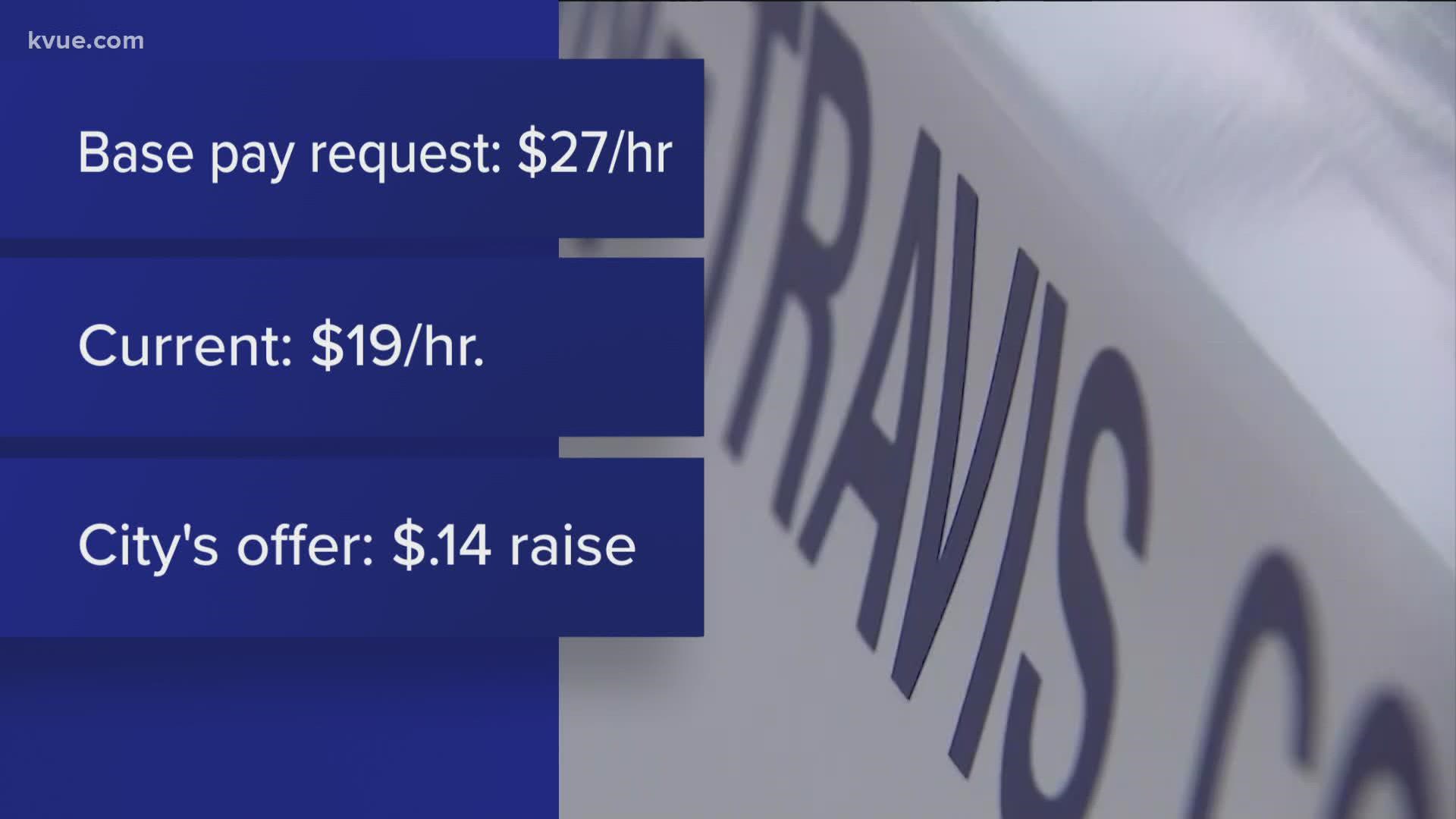AUSTIN, Texas — The medics union for the Austin-Travis County area, the Austin EMS Association, took to social media Friday to call out a recent raise it says medics have received from the City of Austin.
"Austin medics have not negotiated for new pay since 2018," the association tweeted. "A lot has happened here since then … like, a lot a lot. Today, as thanks for our service, the City offered us a 14 cent raise. We know our worth, and, well, that ain’t it. What a shameful day for our lovely town."
Selena Xie, the president of the Austin EMS Association said they originally asked the City of Austin for a base pay of $27 per hour for EMTs, instead of the starting pay of $19 per hour they're currently offered. Xie said the city's offer is discouraging after medics have shouldered so much working through historic events like the pandemic and winter storms, dealing with overtime issues and not getting hazard pay.
"I was very, very disappointed and I mean, you know, unfortunately, we're 25% down right now, and a lot of people voiced extreme frustration and that many people want to quit because of the disrespect shown today," Xie said.
The City of Austin told KVUE in a statement that "our total package was a 51% increase in new money compared to the last contract they approved (in 2018)" and "the entry-level pay for paramedics would be more than 5% higher than any other governmental entity in Texas."
"The City of Austin offered an unprecedented pay package to the union. It’s unfortunate the union is refusing to provide a counteroffer," part of the statement read.
In response, Xie said the union hasn't refused to give a counteroffer yet.
"It's taken them five months to give us their first offer, and they are upset that we did not respond within the day with a counteroffer. So that entitlement and arrogance is shocking, honestly," Xie said. "When they say that their pay package is 50% more, it is because we received a very, very low pay package in 2018," the union president added.
Xie said in the City's statement, officials only address the pay of paramedics and not EMTs, who the union is advocating the most for right now when it comes to pay.
The association changed its Twitter account name to "WorthMoreThan14Cents."
Xie tweeted about the raise, stating, "Working through the Ice Storm and COVID-19 has been really hard. After all that, being told directly by the City of Austin that medics deserve a $0.14 raise is worse."
The City of Austin told KVUE that when the union raised concerns about staffing shortages and overtime, city officials offered to hire directly into the paramedic rank.
"Our offer would have aided in reducing the existing vacancies," the City statement read. "It is surprising that the union chose to hold off on prioritizing their members' work life balance."
The City said that EMS employees currently receive pay increases based on their tenure with the Austin-Travis County EMS.
"Using the current pay structure, over the next four years, the offer on the table would provide a 15% increase to 70% of the employees and a 24% pay increase to 29% of the employees. Our Paramedics are the amongst the highest paid in the nation by the end of their career.
"We value our medics and will continue to do what we can as a City to attract and retain the best medics for our citizens, but we are unable to meet their request for a 55% base wage increase over four years and must remain fiscally responsible," the statement read.
So, how does Austin's pay compare to other cities?
According to Indeed, EMTs in Dallas make an average of $17.44 as a base salary. In Houston, starting EMTs make an average of $17.25 an hour.
Nationally, the U.S. Bureau of Labor Statistics reports that the median pay level for EMTs and paramedics is $17.63 an hour, which comes out to a salary of just over $36,000 per year.
Katie Naranjo, chair of the Travis County Democratic Party, responded to the back and forth Friday, saying she was "happy to support efforts for our medics."
The current EMS contract is up in September and Xie said they'll ask for federal mediators to help them work through the issues.
"At this point, we need federal mediators to help us work through our issues because we are just too far apart. The federal government through the FMCS, they actually provide folks that can help work out labor negotiations on a lot of different topics," Xie said.
PEOPLE ARE ALSO READING:

